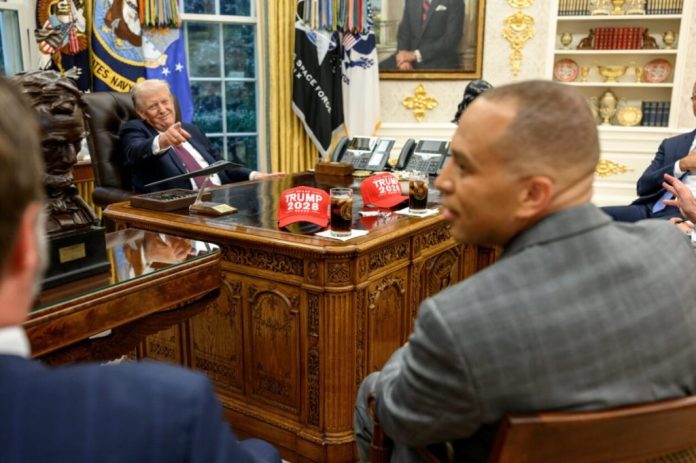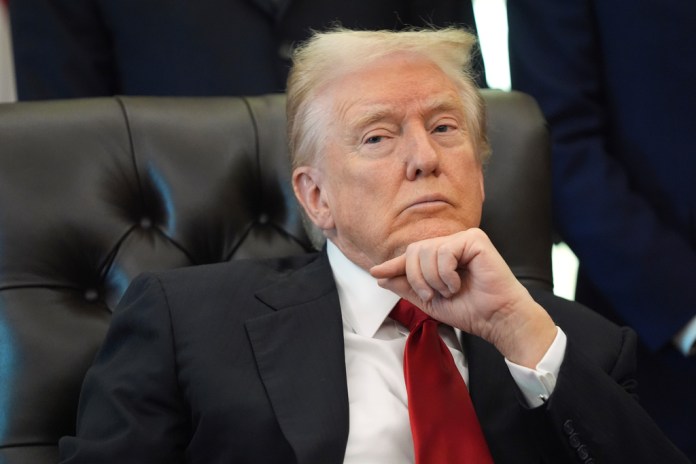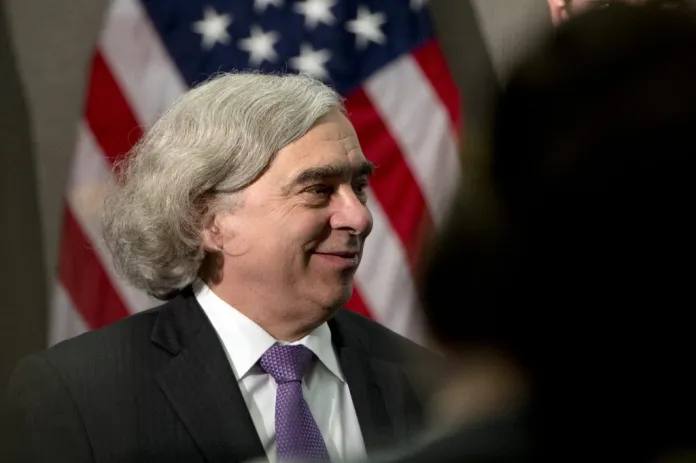Former FEC chairman: Bragg campaign finance claims against Trump are ‘laughable’ – Washington Examiner
Former FEC chairman Bradley Smith testified to Congress that the hush money charges against former President Donald Trump by Manhattan District Attorney Alvin Bragg are “laughable.” Smith identified legal errors in Bragg’s case, arguing that the claim Trump violated campaign finance laws to pay off Stormy Daniels could not have affected the 2016 election. Smith criticized the charges and explained that the payment to Daniels should not be considered a campaign expenditure. He expressed disappointment at not being able to testify at Trump’s trial and provide relevant context to jurors. Another FEC commissioner, Trey Trainor, also criticized Bragg for bringing federal campaign finance laws into a state case. Bragg’s actions have attracted scrutiny for allegedly attaching a New York election violation to Trump’s charges.
Former FEC chairman: Bragg campaign finance claims against Trump are ‘laughable’
A former Federal Election Commission chairman testified to Congress on Tuesday that the Manhattan district attorney’s hush money charges against former President Donald Trump were “simply laughable.”
Bradley Smith, who was originally set to appear as a defense witness in Trump’s New York trial, identified for lawmakers what he viewed as legal errors in District Attorney Alvin Bragg’s case.
In a lengthy written opening statement, Smith mapped out in detail how Bragg’s claim that Trump violated campaign finance laws to pay off porn star Stormy Daniels could not have amounted to, as Bragg alleged, a conspiracy to throw the 2016 election.
Bragg, an elected Democrat, secured a felony conviction against Trump for falsifying records of the Daniels payment. Trump’s former attorney Michael Cohen issued the payment from his own personal bank account days ahead of the election, and then the Trump Organization reimbursed Cohen beginning in 2017 after Trump took office. Bragg was able to elevate Trump’s charges of falsifying business records, which are normally misdemeanors, to felonies in part by alleging the Daniels payment amounted to an illegal campaign contribution.
Smith said the payment could not have been categorized as campaign related and that “even assuming the expense was a campaign expenditure, no public disclosure of the expense would have been legally required before the election.”
A nefarious plot to hide the expenditure until after the election was impossible because of these deadlines, Smith said.
“This undercuts the entire theory of the case offered by the prosecution,” Smith said, observing how prosecutor Matthew Colangelo told jurors that Cohen’s payment to Daniels, which was made as part of a nondisclosure agreement to suppress her story about an alleged affair with Trump, was an “illegal payment” and “election fraud, pure and simple.”
Smith added that to him, the “most important principle of campaign finance law” dictates that any payments to Daniels “were not, and should not be, considered campaign expenditures.”
A payment to her therefore “cannot support a finding of a [Federal Election Campaign Act] violation,” Smith testified.
Smith, a Republican, is a professor at Capital University Law School who was appointed to the FEC by former President Bill Clinton. He has frequently been tapped as an election expert for testimonies and other speaking engagements.
Trump’s defense team initially planned to call Smith to testify at trial, but defense attorneys reversed course after Judge Juan Merchan narrowed the scope of what Smith could speak about from the witness stand. Merchan warned that as an expert witness, which is what Merchan deemed Smith, the former FEC official could not reference any facts about Trump’s case and could instead speak only in general terms.
Smith told lawmakers that if he had been called to the witness stand and had enough leeway from Merchan, he would have provided “relevant context” about FEC deadlines to jurors that he believes would have led them to acquit Trump.
Smith’s brutal assessment of Bragg comes after Trey Trainor, another FEC commissioner, testified last month to Congress that he believed Bragg “usurped” federal law when he tried to bring federal campaign finance laws into a state case that the FEC had already vetted.
The two election law experts’ criticisms of Bragg follow the district attorney attracting scrutiny for taking the rare step of attaching, or “bootstrapping,” a New York election violation to Trump’s falsifying records charges to overcome statutes of limitations and strengthen the charges to felonies.
Bragg alleged Trump violated New York election law’s section 17-152. The statute states that it is against the law to conspire to influence an election “by unlawful means.”
Bragg gave the jury three options for what those unlawful means could have been. One of the options was that Trump violated FECA. The other two options were additional falsifications of records or tax violations. The jury did not have to agree on what unlawful means Trump used to violate section 17-152, only that he violated the overarching state law.
CLICK HERE TO READ MORE FROM THE WASHINGTON EXAMINER
Trump is expected to appeal his conviction on numerous grounds, and some legal experts have speculated that one could be that Bragg inappropriately incorporated federal campaign finance laws into a state prosecution.
Bragg’s office did not respond to a request for comment.
" Conservative News Daily does not always share or support the views and opinions expressed here; they are just those of the writer."




